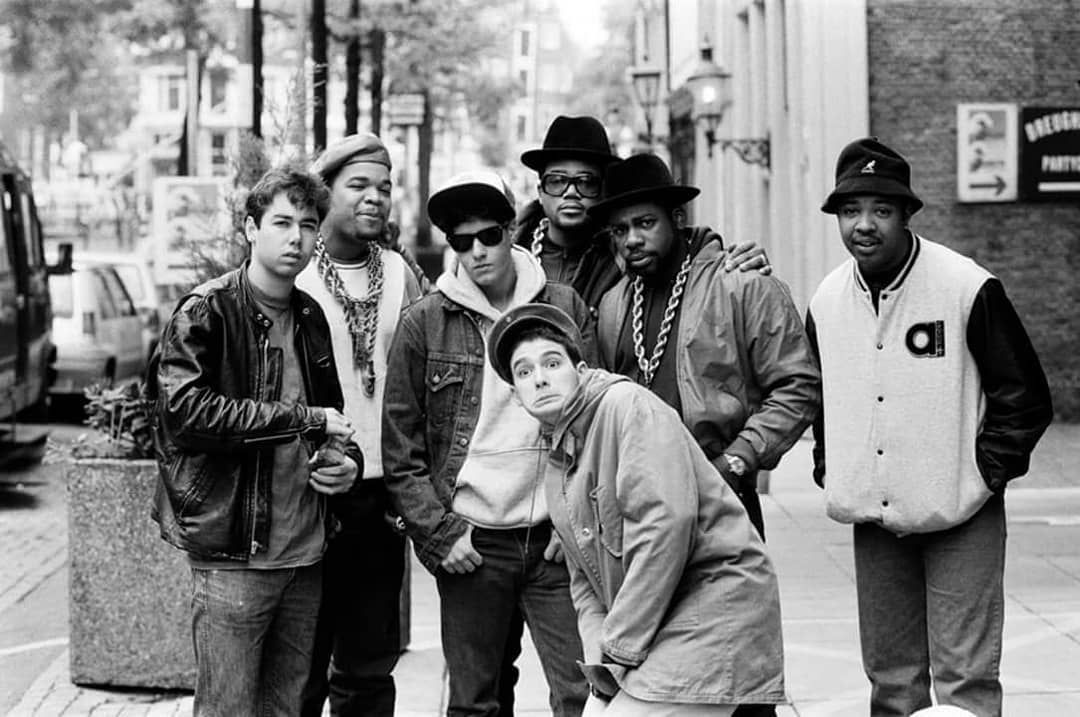This Black History Month, Upstaged Entertainment is focusing on the history of multiple, traditionally African-American performing arts in an effort to raise awareness and shed light on their deep impact on American culture today.
Today, we want to focus on Hip Hop, a strong cultural movement defined by working-class African Americans. This movement comprised of a combination of a rhythmic beat and rhythmic movements backed by traditional African-American forms of music. Hip Hop can take many forms, but here is a glimpse into what it can look like.
Celebrating 50 Years of Hip Hop
Hip Hop has a specific birthplace – so specific, in fact, that it has a street address: 1520 Sedgwick Avenue, the Bronx, New York. At that location, on 11 August 1973, DJ Kool Herc debuted what would come to be one of the foundations of Hip Hop: in an attempt to draw out the percussive ‘breaks’ in popular funk and soul records, he began performing with not only one but two turntables, elongating these sections for a crowd hungry to dance.
Three characteristics of Hip Hop Music:
- A strong, rhythmic beat that can vary in tempo
- Rhyming Vocals that usually consist of rap but can also consist of singing, spoken word, autotune, or ad-libs
- Breaks which are long percussive periods
Check out the 2023 Grammy’s Tribute to Hip Hop:
Most influential Hip Hop Artists of all time:
- Kool Herc, known for the party he threw at his house in which Hip-Hop was born.
- Afrika Bambaataa, known as the father of Hip Hop who was inspired by Herc to spread these kinds of parties.
- Grandmaster Flash, known for starting scratching and beat-boxing techniques that are common to Hip-Hop now.
- Rakim, known for his different rhyming techniques to be within words instead of just at the ends of lines which furthered the development of rapping.
- Ice Cube, known for his hard music that reflected the racial and political tensions in America in the 1990s.
- Notorious B.I.G, known for his strong ability to tell a story within his music.
- Nas, known as a master rhymer within his music.
- Eminem, known as the best-selling rapper of the 2000s and continues to reflect Hip Hop culture in the modern day.
- Nicki Minaj, known as one of the strongest female rappers in history dominating pop music, fashions, and social politics in the modern era.
- Drake, known as the modern rap superstar who mixes different musical styles and lyrics to produce high-streaming songs.
Five Major Moments in Hip Hop History:
- 1978 – The music industry first uses the term “rap music,” which shifts the focus in hip hop from the deejays to the emcees.
- 1983 – Ice T pioneers rap on the West Coast. Michael Jackson does the moonwalk, borrowing from b-boy dance moves.
- 1985 – Salt-n-Pepa enters the scene as one of the first female rap groups.
- 1998 – Lauryn Hill’s solo album, The Miseducation of Lauryn Hill, earns 11 Grammy nominations and five wins.
- 2008 – Jay-Z becomes the first rapper to headline Glastonbury, the largest greenfield music and performing arts festival in the world.
Influence Beyond Music:
Hip Hop is not only significant for its musical influence, but also by its influence of other music genres and culture such as beatboxing, DJing, street art, graffiti, dancing, and other forms of expression. This culture was degraded many times in the past as it was seen negatively; however, many Hip Hop artists have been able to speak up against their environmental factors through their music in an effort to challenge this image and further develop the culture of Hip Hop.
Check out this video of National Hip Hop Champions, West Chester University Dance Team.
Hip Hop is an ever-changing culture that has endured many challenges. It continues to evolve as new techniques and styles are brought into light; however, it will forever be deeply rooted in American history and American culture.







